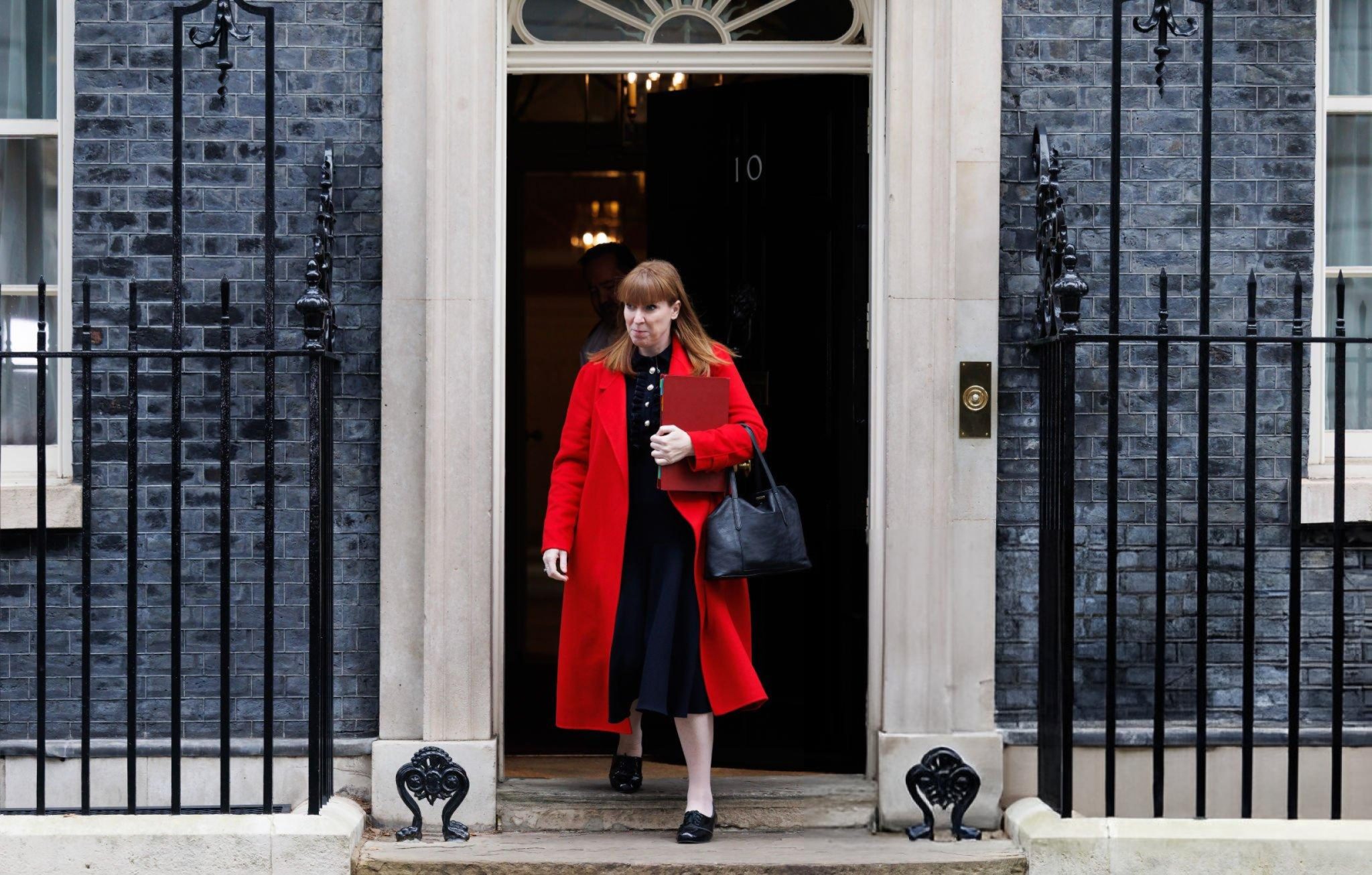Job done, then, Angela? In one regard, Deputy Prime Minister Angela Rayner’s business agenda seems to have achieved what it set out to do. What’s that, you ask, considering the palpable gloom in the business community ever since the Chancellor’s “growth” Budget?
Well, it turns out that Britain is now Europe’s epicentre of the “working from home” economy. Recent figures from LinkedIn show that a striking 40 per cent of all job advertisements in November offered flexible working. This is a stark contrast to France and Germany, where only one in three jobs offered the same benefit.
And as Rayner’s employment rights legislation soon takes effect, that figure could rise even higher. A key element of the new package is to make flexible working the “default” option for all employees from the outset. While the previous government simply granted the right to request flexible working, Rayner’s approach places the burden on employers to provide valid reasons if they can’t accommodate such requests.
However, this shift in policy may not be entirely embraced by businesses. One element of the proposed changes is the introduction of a right to claim unfair dismissal from the very first day of employment. As Tina McKenzie from the Federation of Small Businesses has pointed out, this proposal should be reconsidered to mirror the previous Labour Government’s one-year qualification period for such claims. Failure to address this concern, McKenzie warns, could have devastating consequences for small firms that lack the resources to handle a significant increase in HR administration.
Despite concerns raised by business leaders, Rayner remains steadfast in her belief that her agenda will lead to greater productivity. She claims that a secure workforce is a more confident one, which in turn leads to more spending in the economy. But businesses don’t appear to share this optimism. Barclays has become the latest company to ask employees to return to the office at least three days a week. Amazon and Boots have already implemented similar changes. Notably, the only sector that seems to be holding out against the work-from-home shift is the Civil Service, where the Office for National Statistics has threatened strike action over the potential loss of this perk.
The question remains: could Chancellor Rachel Reeves take note of the mounting concerns from businesses about the potential damage to jobs and growth? The increase in National Insurance contributions has already prompted companies such as Brompton Bikes to delay investment and job creation. Lakeland, a home products retailer, is even considering selling up. When you add in the potential barriers to hiring and the added complexity of employment rights, businesses may increasingly decide to forgo hiring altogether.
An employee who has the right to work from home from day one, coupled with the added difficulty of dismissing someone without jumping through bureaucratic hoops, may seem less attractive to employers. Furthermore, with the right to parental leave from day one, businesses may find themselves facing even more red tape and increasing costs.
While the Chancellor’s growth agenda, which includes initiatives such as stimulating growth via Chinese investments and pushing for the third runway at Heathrow, could be seen as attempts to inject life into the economy, they may be insufficient to offset the adverse effects of the new employment rights. Some areas of the agenda are still open to consultation, but the flexible working element is non-negotiable.
The problem for the Government is that it is pulling in two separate directions. The rights agenda is veering towards greater protection for employees, while the growth agenda is attempting to stimulate business investment and job creation. These two objectives are inherently at odds with one another. It’s difficult to see how increasing the cost and complexity of hiring people will lead to more jobs, not to mention economic growth.
And if the Government’s stance on employment rights wasn’t already problematic enough, there’s another looming challenge: rising energy costs. For many businesses, this could be the final straw. As the manufacturing sector continues to feel the squeeze, it’s likely that the only area of the economy experiencing growth will be the public sector.
As someone who frequently works from home, I can attest to the benefits of remote working, but I also acknowledge its limitations. While it offers flexibility, it often comes at the expense of productivity. Without face-to-face interaction, it’s much harder to brainstorm ideas, follow up on tasks, or even simply build relationships with colleagues. Zoom may suffice for quick check-ins, but it can’t replicate the camaraderie and efficiency of in-person collaboration.
It seems that the two senior women in government, Rachel Reeves and Angela Rayner, may need to compare notes. At present, they are like the pushmi-pullyu from Dr Dolittle, going in opposite directions. Perhaps Sir Keir Starmer, the leader who is nominally in charge, should step in to clarify that if growth is truly the priority, this current path may not be the best way forward.







